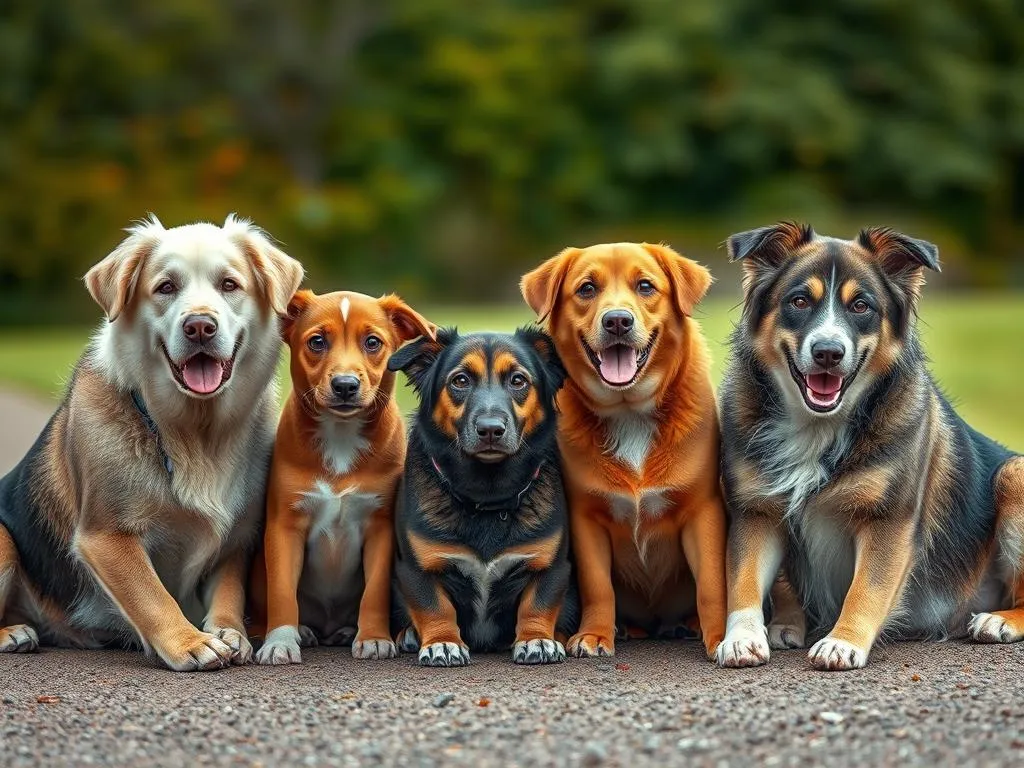
Introduction
Dog ownership brings immense joy, companionship, and love into our lives. However, the experience can be greatly enriched by connecting with fellow dog lovers in your community. Joining a dog group not only provides social opportunities for your furry friend but also creates an environment where you can meet new people and share experiences. This article explores the various types of dog groups, the benefits of joining one, how to find the right group for you, and much more. Let’s dive into the world of canine companionship and community building!
What is a Dog Group?
A dog group can be defined as any organized assembly of dog owners and their pets, designed to promote socialization, training, and support among members. These groups can vary widely in focus and activities. Here are some common types:
Breed-specific Groups
These groups cater to specific dog breeds, fostering a community of owners who share similar experiences and knowledge about their breed. They often organize events such as breed shows, training sessions, and social meetups tailored to the unique needs of that breed.
General Dog Clubs
General dog clubs are inclusive communities where all breeds are welcome. These clubs may host training classes, social events, and educational workshops, providing a space for everyone to learn and grow together.
Training and Obedience Classes
Many dog groups focus on training and obedience, offering structured classes where owners can learn effective training techniques. These groups emphasize positive reinforcement and help owners tackle common behavioral issues.
Dog Playgroups
Playgroups are informal gatherings where dogs can interact and play with one another. This setting is beneficial for socialization, allowing dogs to develop their social skills while owners can relax and chat.
Importance of Community in Dog Ownership
The sense of community in dog ownership is paramount. It helps to build a support network for owners, allowing them to share advice, resources, and experiences. Unlike casual meetups, dog groups often provide a structured environment that fosters deeper connections among members.
Benefits of Joining a Dog Group
Socialization for Dogs
Dog groups are essential for the socialization of your pet. Regular interactions with other dogs help reduce anxiety and improve behavior. Dogs learn vital social cues and manners, making them more adaptable and less prone to aggression or fearfulness.
Socialization for Owners
As a dog owner, joining a group offers you the chance to build friendships with fellow dog lovers. It creates networking opportunities, allowing you to share tips, experiences, and even arrange playdates. The bonds formed within these groups often extend beyond the dog park.
Access to Resources
One of the most significant advantages of being part of a dog group is the access to resources. Many groups offer training resources, workshops, and informational sessions on dog health and wellness. Members can share knowledge about nutrition, grooming, and veterinary care, enhancing the overall well-being of their pets.
Fun Activities and Events
Dog groups often organize various events that can be both enjoyable and beneficial. From group walks and dog shows to competitions and organized outings, these activities foster camaraderie among members and provide opportunities for dogs to showcase their talents.
How to Find the Right Dog Group
Researching Local Options
Start by researching local options. Online platforms like Facebook, Meetup, or dedicated pet websites can yield a wealth of information. Additionally, local pet stores and veterinary offices often have bulletin boards or staff who can recommend groups in your area.
Evaluating Group Compatibility
Once you’ve identified potential groups, assess their compatibility with your needs. Consider the group size, dynamics, and the interests of its members. Look for groups that align with your values and the needs of your dog.
Visiting a Group Meeting
Before committing, visit a group meeting to get a feel for the environment. Observe how members interact, and take note of the group’s structure. Don’t hesitate to ask group leaders or members questions about the group’s activities, expectations, and policies.
Tips for Joining and Participating in a Dog Group
Preparing Your Dog
Before joining a dog group, ensure your dog is ready. Basic training is crucial, as well as ensuring your pet is up to date on vaccinations and health checks. A well-behaved dog will make the experience enjoyable for both of you and for other members.
Engaging with Other Members
Engagement is key to building connections. Approach fellow dog owners with openness and friendliness. Share stories and experiences; remember, everyone in the group shares a common interest – their love for dogs.
Contributing to the Group
Contributing to the group can enhance your experience and strengthen the community. Volunteer for events or activities, and share your own experiences and advice. This not only helps others but also establishes you as a valued member of the group.
Common Challenges and Solutions
Overcoming Introversion
If you’re shy or introverted, stepping into a dog group can feel daunting. Start small by observing from a distance or engaging in one-on-one conversations. Remember, many members are likely to be in the same boat as you, and fostering connections can take time.
Dealing with Aggressive Behavior
Concerns about aggressive dogs can be a barrier to joining a group. It’s essential to communicate openly with group leaders if you have worries. Most groups will have protocols in place for managing conflicts and ensuring a safe environment for all dogs.
Maintaining Balance
It’s important to ensure that your dog is comfortable in group situations. Pay attention to their body language, and know when to step back or take breaks. A positive experience is crucial for both you and your dog, and it’s perfectly acceptable to take time apart if needed.
Real-Life Success Stories
Testimonials from Dog Owners
Many dog owners have found fulfillment and joy through their local dog groups. Take Sarah, for example, who shares, “Joining a dog group transformed my experience as a dog owner. I made lifelong friends, and my dog, Max, has become more sociable than ever!” Such testimonials showcase the profound impact these groups can have.
Community Impact
Dog groups often extend their influence beyond just socialization. Many are involved in rescue and adoption initiatives, raising awareness about pet adoption and supporting local shelters. By coming together, these groups can strengthen the community and make a meaningful difference.
Conclusion
Joining a dog group can significantly enhance your lifestyle by fostering connections, providing resources, and enriching your dog’s life. The benefits of socialization, both for your dog and yourself, create a supportive and enriching environment. Whether you’re a seasoned dog owner or new to the world of canine companionship, exploring local options and getting involved can lead to unforgettable experiences and lasting friendships.
Call to Action
We encourage you to share your experiences with dog groups or seek recommendations for local groups in your area. Connecting with others who share your passion for dogs not only enhances your journey as a pet owner but also contributes to the vibrant community of dog lovers everywhere.









